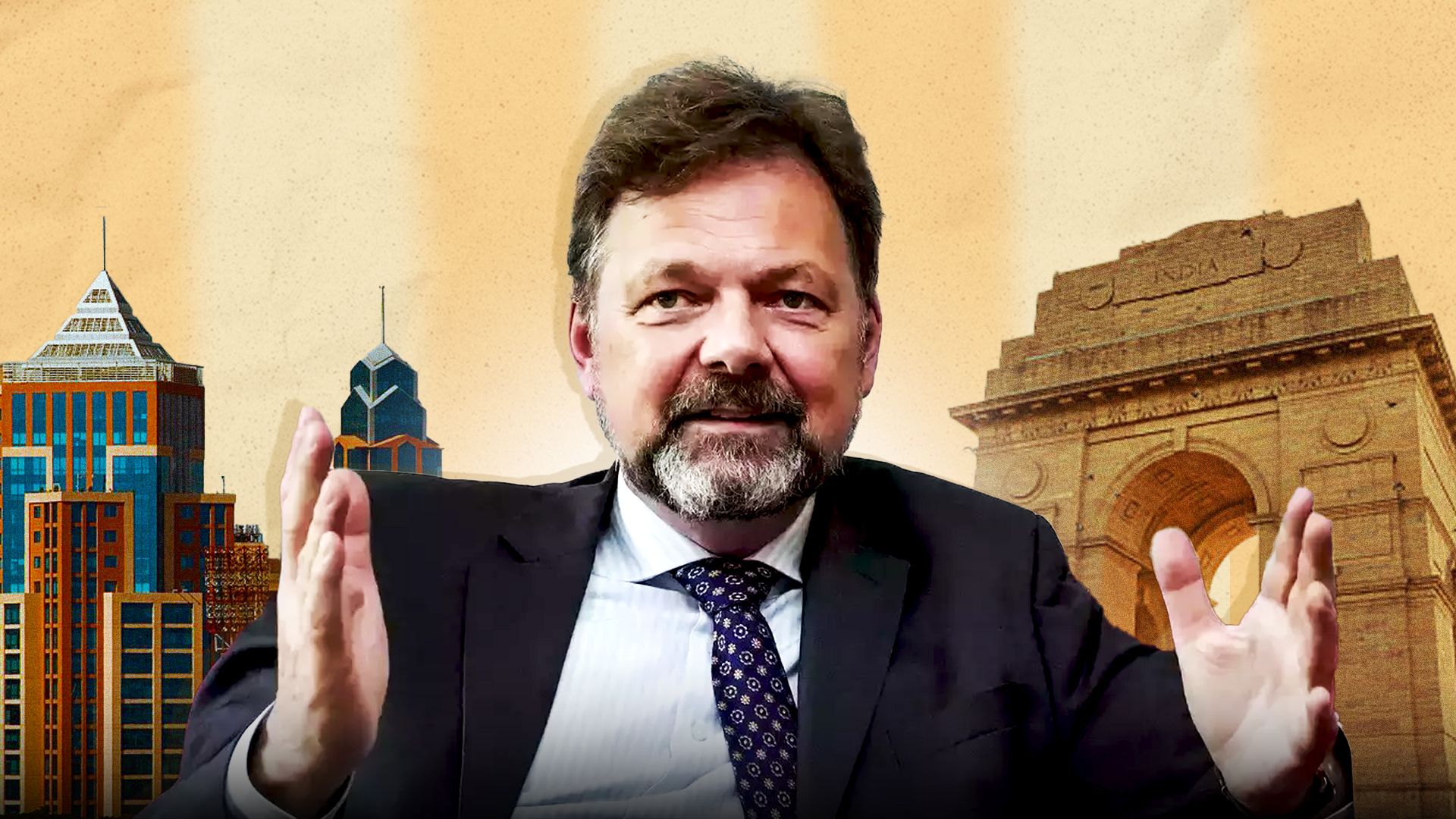Dr Philipp Ackermann And Germany’s Bet On India
The German ambassador spoke about his country’s keen interest in India, the market, and his affinity towards the country
Key Takeaways
- Dr Akkemann harbours an innate love for India’s art, culture, architecture and people
- Germany and India have partnerships at several levels, including skilled labour transfer and education
- There is a need to strike a balance between labour migration and a talent war
- India and Germany have a €1.3 billion a year partnership for green and sustainable development
Recently, the German Ambassador to India and Bhutan, Dr Philipp Akkermann, was in Bengaluru. In the past decade, with India strengthening its position as a global powerhouse, the country’s relations with Germany have strengthened. The Central European nation has invested in India, and a German company, Verbio, has set up a biofuel plant in Punjab.
I was naturally curious about meeting with Dr Akkermann. He took charge of the German Embassy in 2022 and since then hasn’t just been forging stronger bonds in the nation but also trying to immerse into the Indian way of life. He has visited local markets, eaten street food, and has also matched steps with young Indians dancing to the new party anthem Natu Natu.
My curiosity led me to invite the ambassador to visit the YourStory office in Bengaluru, which he graciously accepted. We chatted about Germany-India relations, India's global standing, the growing interest in Indian markets, and his personal experience with the country.
In his exclusive interview with YourStory, one of the first few things the German Ambassador told me was his philosophy: “Life is all about making others happy”.
Returning to India
The ambassador’s love affair with India is almost two decades old. He first visited the country in 2007, when he spent three years in New Delhi as a political counsellor. An art history major who ended up going the foreign services route, Dr Akkermann was taken by the art and culture of the capital city and would make several trips to the Red Fort, an architectural marvel. In our conversation, when I bring up his first stint in India, he tells me a story, which not many know.
One time, when his parents were visiting, he took them to the Lal Qila and asked them to explore it while he sat outside reading. There, he was approached by a young Indian man who wanted to talk to him. While sceptical that the man might ask for money, the ambassador agreed to listen to him.
“He was a young student from Gujarat, who had come to Delhi for a scholarship interview. He didn't get the scholarship and so was a bit depressed,” shares Dr Akkermann. But what the man said next warmed the ambassador’s heart. “You know, I haven't spoken to anybody in 24 hours. Could you believe that? I can't live without talking,” the man told Dr Akkemann and then shared stories of his friends and family. He didn’t want money, nor did he want help with visa. He just wanted to talk. And talking to Dr Akkermann made him happy, which made the ambassador happy. It, after all, is his philosophy.
This young man from Gujarat, this story, the memory of his face, stayed with Dr Akkermann while he travelled to different countries for work. And he says he wanted to return to India. A dream his country’s government has fulfilled for him.
Recognising India's advantage
I wanted to examine what drew Dr Akkermann to our country. Talent, he says, that he wants to welcome to Germany. “One of the big files on my table is the migration file,” he informs me. “In Germany, we have an economic problem right now, because of the shortage of labour and we need skilled labour at every level. The German government has now introduced a law that makes migration way easier. So in order to overcome this shortage of labour, we have to get legal migration to Germany.”
But beyond the skilled labour, the ambassador hopes that the students who migrate to Germany for education choose to take up jobs in the country and build a life “with great work-life balance”.
Recognising that attracting talent also means jumping headfirst into a talent war, he says that it’s what a major part of his job entails. “Now, we have to make people understand they are welcome to Germany and what they can expect after migrating,” he adds. He's collaborating with institutes such as the Indo-German Chamber of Commerce and universities to promote Germany's interest in Indians. And this talent war means that they have to be quick and smart and make an offer, as the Godfather would say, they can’t refuse. “It's a lesson we have to learn from Canada and Australia,” says the ambassador. “They have a long tradition of Indian migration… we have to copy a bit of what they do,” he admits with a smile.
Sustainability initiatives
Germany has had a long history of investing in India. From Bosch to Bayer, and SAP to Siemens, these major companies have set homes for decades in India. But the ambassador says it’s not just the big ones now, “what we also see is that medium and small-sized enterprises come to India to get digitised.” There are now 2,200 German companies that have set up offices in India. And this number grows every year.
The ambassador sees this as a positive sign and adds, “It's the sign of a vibrant, very creative, economic environment, business environment. And that's why they come to India. So India is very much in the focus right now”.
There are several parallels that can be drawn between India and Germany. For one, like Bengaluru is the startup hub of India, Berlin is for Germany, and the companies there, in the ambassador’s words, form “the backbone of the economy”. Besides this, it’s also the focus on tackling climate change that ties the two nations together.
I wanted to know how the two nations are working on the thing that’s on the mind of every young Indian? And he told me about the sustainability initiatives Germany and India are working together on.
“What we have with India is a partnership for green and sustainable development. And it's a partnership that comes with a lot of money. (It’s) €1.3 billion a year where we, with the Indian government together, find areas where we will try to mitigate the consequences of climate change,” he explains.
From finding renewable sources of energy to replacing fossil fuels to building metro infrastructure and creating smart cities, the two countries have joined hands to work together and strive to continually find other areas of collaboration.
“Without India, climate change will not be managed,” he says.
Art, culture, and mangoes
My time with the ambassador was running out, and there still was a lot to ask. But I couldn’t have let him go without knowing his view of the burgeoning art scene in India. He was quick to point out that in the past 12 years, when he wasn’t in India, the country forged a personal relationship with the arts. It’s not just the roads that are bigger and better or the electricity that has reached all corners, but it’s also the museums, it’s the culture that is thriving.
“I'm an art historian. So I'm very intrigued by Indian art, and I want to learn about it. I'm quite convinced that you can understand a country only through its history, and that includes its art,” he shares.
After all this talk, that went from business to climate change to art and culture, there was still one silly little thing that the Indian in me was dying to know. Did the ambassador from Germany enjoy mangoes? You can’t spend a summer in India without trying those, after all. And he listed varieties of mangoes, some of which I hadn’t even heard of. When I told him his knowledge exceeds mine, he laughed and said, “I am a mango man”.











